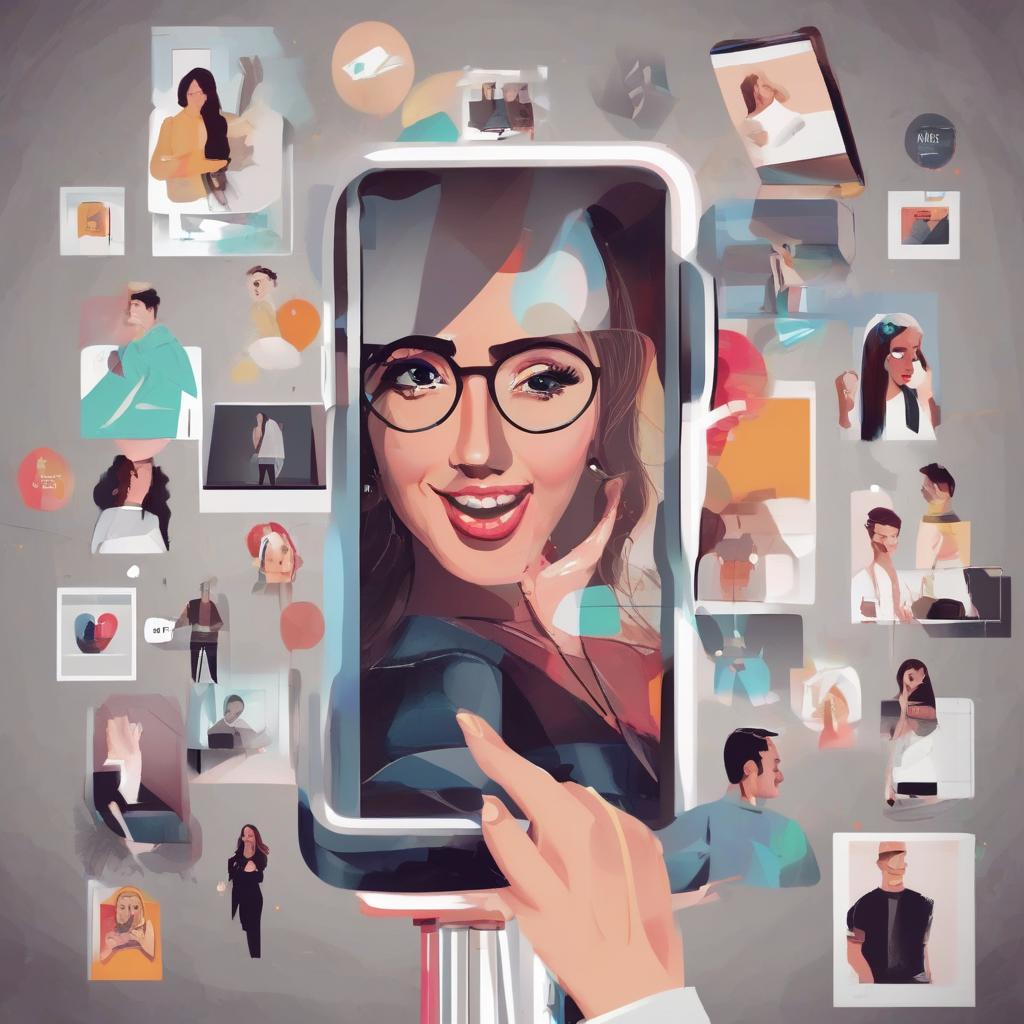
Understanding the Complexities of Modern Life: Navigating the Challenges of the 21st Century
The 21st century has brought about significant advancements in technology, changes in societal norms, and an increasingly complex world. As a result, individuals are facing a multitude of challenges that affect their personal and professional lives. In this article, we will explore the intricacies of modern life, examining the factors that contribute to its complexity and discussing strategies for navigating the obstacles that lie ahead.
The Impact of Technology on Modern Life
Technology has revolutionized the way we live, work, and interact with one another. The widespread adoption of smartphones, social media, and other digital technologies has transformed the fabric of our daily lives. On one hand, technology has opened up new avenues for communication, collaboration, and access to information. On the other hand, it has also created new challenges, such as:
- Information overload and decreased attention span
- Increased stress and anxiety due to constant connectivity
- Changes in traditional employment patterns and the rise of the gig economy
- Concerns around data privacy and cybersecurity
The Role of Social Media in Shaping Modern Life
Social media has become an integral part of modern life, with billions of people around the world using platforms like Facebook, Twitter, and Instagram to connect with others, share their experiences, and consume information. While social media has many benefits, such as enabling global connectivity and providing a platform for self-expression, it also has its downsides. Some of the negative effects of social media include:
- The perpetuation of unrealistic expectations and the cultivation of consumerism
- The spread of misinformation and the erosion of trust in institutions
- The potential for social comparison and decreased self-esteem
- The blurring of boundaries between personal and professional life
The Changing Nature of Work and Employment
The modern workplace is undergoing significant changes, driven by technological advancements, shifting demographics, and evolving societal values. Some of the key trends shaping the world of work include:
- The rise of remote work and the decline of traditional office environments
- The increasing importance of skills training and lifelong learning
- The growth of the gig economy and the precarization of work
- The need for greater flexibility and work-life balance
As the nature of work continues to evolve, individuals must adapt to new realities and develop the skills and strategies necessary to thrive in a rapidly changing job market.
Navigating the Challenges of Modern Life
While the complexities of modern life can be daunting, there are steps that individuals can take to navigate its challenges. Some strategies for managing the demands of modern life include:
- Prioritizing self-care and maintaining a healthy work-life balance
- Developing skills and strategies for managing stress and anxiety
- Cultivating a growth mindset and embracing lifelong learning
- Fostering meaningful connections with others and building strong social support networks
The Importance of Mental Health in Modern Life
The pressures of modern life can take a significant toll on mental health, with rising rates of anxiety, depression, and other mental health concerns. It is essential to prioritize mental health and well-being, recognizing that mental health is just as important as physical health.
Some strategies for maintaining good mental health include:
- Engaging in regular exercise and physical activity
- Practicing mindfulness and meditation
- Connecting with others and building strong social relationships
- Seeking help when needed, whether through professional services or support networks
The Role of Community in Supporting Modern Life
Strong communities are essential for supporting individuals as they navigate the challenges of modern life. Communities can provide a sense of belonging, emotional support, and practical assistance, helping to mitigate the negative effects of stress, anxiety, and isolation.
Some ways to build and engage with community include:
- Participating in local volunteer work or community service
- Joining clubs, groups, or organizations that align with your interests
- Attending community events and festivals
- Using online platforms to connect with others who share similar experiences or interests
Embracing the Opportunities of Modern Life
While modern life presents many challenges, it also offers numerous opportunities for growth, connection, and innovation. By embracing the complexities of modern life and developing strategies for navigating its challenges, individuals can thrive in a rapidly changing world.
Some of the opportunities presented by modern life include:
- The ability to connect with others across geographical boundaries
- Access to vast amounts of information and knowledge
- The potential for innovation and entrepreneurship
- The opportunity to redefine traditional norms and create new ways of living and working
Conclusion
The complexities of modern life can be overwhelming, but by understanding the factors that contribute to its challenges and developing strategies for navigating its obstacles, individuals can thrive in a rapidly changing world. By prioritizing self-care, cultivating meaningful connections with others, and embracing the opportunities presented by modern life, we can create a brighter, more resilient future for ourselves and for generations to come.
As we move forward, it is essential to remain adaptable, open to new experiences, and committed to lifelong learning. By doing so, we can not only survive but also flourish in the face of uncertainty, creating a more fulfilling, more meaningful life in the process.
Future Directions: Embracing the Potential of Emerging Technologies
Emerging technologies, such as artificial intelligence, blockchain, and the Internet of Things, are poised to shape the future of modern life. While these technologies present many opportunities, they also raise important questions around their potential impact on society, economy, and individual lives.
Some potential benefits of emerging technologies include:
- Increased efficiency and productivity
- Improved healthcare outcomes and personalized medicine
- Enhanced educational experiences and access to knowledge
- New opportunities for entrepreneurship and innovation
However, there are also potential risks and challenges associated with emerging technologies, such as:
- Job displacement and changes in traditional employment patterns
- Concerns around data privacy and cybersecurity
- The potential for exacerbating existing social inequalities
- The need for new forms of regulation and governance
As we move forward, it is crucial to engage in ongoing dialogue around the potential benefits and risks of emerging technologies, working to ensure that their development and deployment align with human values and promote a more equitable, more sustainable future.
Frequently Asked Questions
Q: What are the main challenges of modern life?
The main challenges of modern life include information overload, increased stress and anxiety, changes in traditional employment patterns, and concerns around data privacy and cybersecurity.
Q: How has technology impacted modern life?
Technology has revolutionized the way we live, work, and interact with one another, but it has also created new challenges, such as decreased attention span and increased stress.
Q: What is the role of social media in modern life?
Social media has become an integral part of modern life, enabling global connectivity, but it also has its downsides, such as the perpetuation of unrealistic expectations and the spread of misinformation.
Q: How is the nature of work changing?
The modern workplace is undergoing significant changes, driven by technological advancements, shifting demographics, and evolving societal values, with trends such as remote work, skills training, and the gig economy.
Q: What strategies can help navigate the challenges of modern life?
Strategies for managing the demands of modern life include prioritizing self-care, developing skills and strategies for managing stress and anxiety, cultivating a growth mindset, and fostering meaningful connections with others.
Q: Why is mental health important in modern life?
Mental health is essential in modern life, as the pressures of modern life can take a significant toll on mental well-being, and prioritizing mental health is crucial for overall well-being.
Q: How can communities support individuals in modern life?
Communities can provide a sense of belonging, emotional support, and practical assistance, helping to mitigate the negative effects of stress, anxiety, and isolation.
Q: What opportunities does modern life present?
Modern life presents opportunities for growth, connection, and innovation, including the ability to connect with others across geographical boundaries and access to vast amounts of information and knowledge.
Q: What are the potential benefits and risks of emerging technologies?
Emerging technologies, such as AI and blockchain, present potential benefits, such as increased efficiency and improved healthcare outcomes, but also raise concerns around job displacement, data privacy, and social inequalities.
